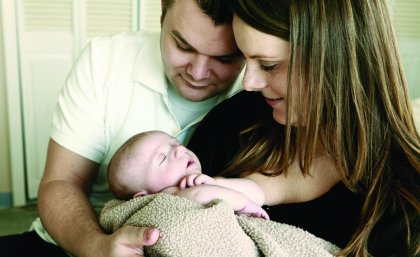
Post-natal care is failing to meet the needs of Queensland women and their families.
And mothers who give birth in private hospitals report being worse off than their public hospital counterparts.
University of Queensland research has revealed significant deficiencies in the quality of care women receive after having a baby.
UQ Queensland Centre for Mothers and Babies Director Professor Sue Kruske said the transition to motherhood was a dramatic change for many women, but postnatal care was not meeting the needs of women and families.
“Women birthing in private hospitals spend longer in hospital and rate their postnatal hospital stays more highly than women in public hospitals,” she said.
“However, they leave hospital with lower levels of confidence to parent than women who birth in public hospitals, and that’s when they find gaps in the care available to them.
“The majority of women who birth in private hospitals do not receive any home visits or follow-up telephone calls from a care-provider after birth and are not offered details of local parents’ groups.”
Professor Kruske said the findings were drawn from QCMB's Having a Baby in Queensland Survey, a biannual survey of thousands of Queensland mothers which is run in partnership with the Registry of Births, Deaths and Marriages.
The survey revealed care after childbirth was rated poorly compared to other stages of maternity care in both public and private hospitals.
Professor Kruske said one-third of women who birthed in private hospitals would have liked more support, and just 42 per cent of women who birthed in private hospitals rated their after-hospital postnatal care highly.
“A range of factors contribute to women not being as happy with postnatal care, including receiving conflicting advice, pressure to breastfeed without sufficient support, not having the telephone number of someone they could call if they were worried, and feeling like care providers are too busy to help,” she said.
“For many women, going home from hospital is an isolating experience and health services aren’t filling that gap.”
Many women seek health care and advice from their GP or a local Child and Family Health Nurse within the early weeks of parenting, but the QCMB found communication between hospitals and community-based health services was often delayed and lacked useful or consistent information.
“Again, this communication appears worse for women birthing in private hospitals,” Professor Kruske said.
“Lots of women say to us ‘how come I pay all this money and my friends in public hospitals get better support when they go home than I do?
“Women need to be more informed about what to expect when they go home and where they can access support from other services.”
Media: Professor Sue Kruske, 0418 882 337.
.jpg)


